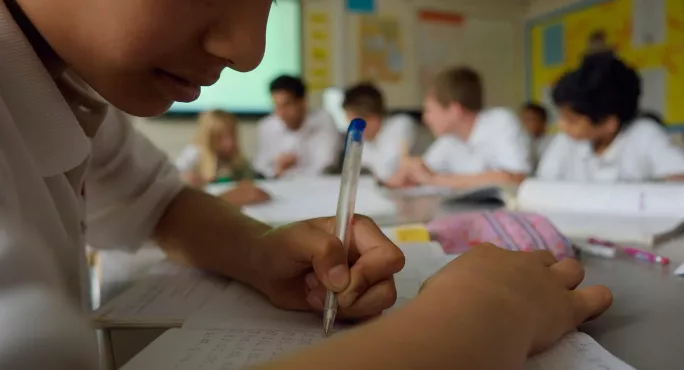Today’s provisional Sats results reveal that 65 per cent of 10- and 11-year-olds have reached the expected standard in reading, writing and maths.
The headline figures released by the Department for Education show that results have risen since last year, when 64 per cent of pupils reached the expected standard in the three Rs.
Maths: ‘Tricky’ maths test left children in tears
Sats results 2019: All you need to know
Opinion: ‘Keep Sats,’ say ministers - but they’ve already made the tests a sideshow
Around 600,000 Year 6 children took the tests in reading, maths and spelling, punctuation and grammar (Spag) in May.
There are also writing assessments carried out by pupils’ own teachers.
Today’s results show that 73 per cent of pupils reached the expected standard in reading, down from 75 per cent last year.
In maths, 79 per cent of pupils reached the expected standard, up from 75 per cent last year.
In Spag, 78 per cent of pupils reached the expected standard, the same as last year.
In writing, 78 per cent of pupils reached the expected standard the same as last year.
The threshold scores revealed earlier today show that fewer marks were needed to reach the expected standard in maths and Spag this year than last year. But the threshold score stayed the same in reading.
Schools now have the chance to study their pupils’ scores, and they may appeal if they think the mark scheme has been applied incorrectly or if there is a clerical error.
Updated results are due to be published later this year.
Nick Gibb, school standards minister, said: “These results show the majority of pupils are leaving primary school ready to deal with the challenges of secondary school. The pupils who performed well in these tests will have demonstrated sophisticated grammatical skills like using the subjunctive, the ability to divide fractions and mastery of complex spellings.
“We reformed these tests in 2016 to make sure they assessed schools’ performance in equipping pupils to understand the new, improved primary curriculum. These skills will give them the chance to make the most of their potential - this is at the heart of the reforms we’ve introduced across the education system since 2010.
“It’s testament to the hard work and dedication of teachers that we have seen results rising over time despite the bar of expectation having been raised.”




